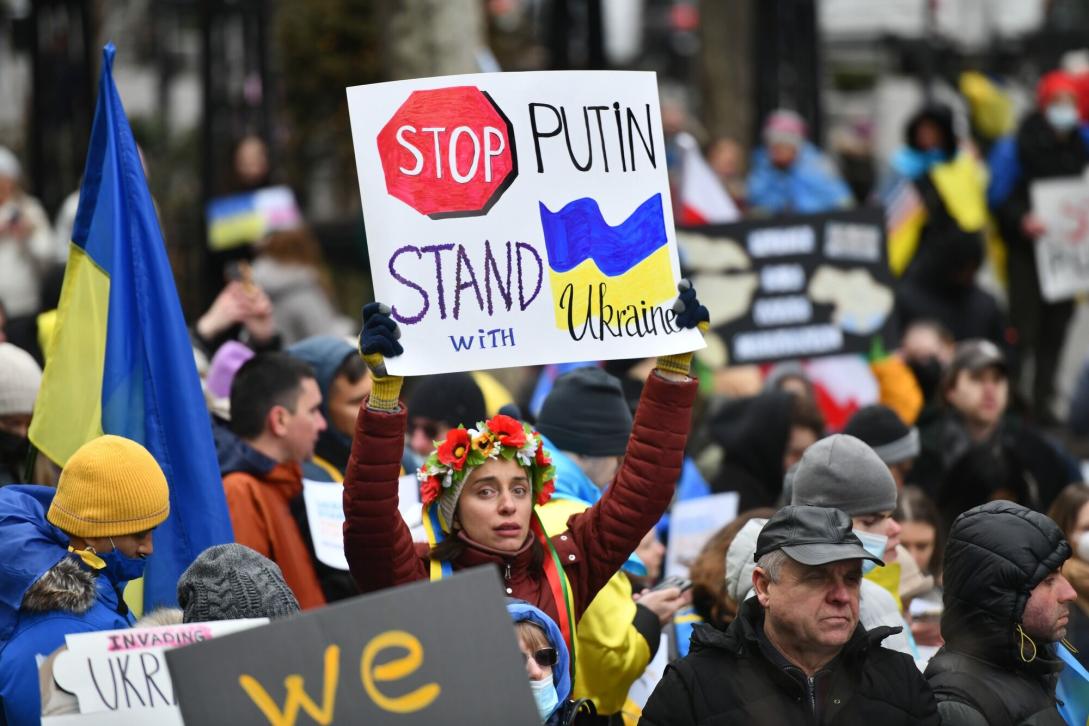EU sanctions against Russia

The EU has so far imposed 14 packages of massive and unprecedented sanctions on Russia in response to the latter’s aggression against Ukraine on 24 February 2022, and the illegal annexation of Ukraine's Donetsk, Luhansk, Zaporizhzhia and Kherson regions. These supplement existing measures imposed on Russia since 2014 following the annexation of Crimea and Sevastopol and the non-implementation of the Minsk agreements. The sanctions consist of targeted individual sanctions and sectoral economic sanctions that seek to achieve three key objectives: send the Kremlin a strong signal of Western resolve and unity, degrade Russia's military capabilities, and reduce its capacity to continue its war of aggression against Ukraine, including by compressing its economy and energy sector, with long-term consequences.
Sanctions in view of Russia’s war of aggression against Ukraine
EU sanctions in respect of actions undermining or threatening the territorial integrity, sovereignty and independence of Ukraine apply to a total of 1 783 individuals and 469 entities (to date). The list of sanctioned individuals includes prominent figures like Russian President Vladimir Putin, Foreign Affairs Minister Sergey Lavrov, former President of Ukraine Viktor Yanukovych, Roman Abramovich and other leading businesspersons, members of the Russian State Duma and the National Security Council; but also less known members of the judiciary, local politicians and people responsible for the illegal deportation and military re-education of Ukrainian children, for the atrocities committed in Bucha and Mariupol, and for the missile strikes against civilians and critical infrastructure. Most of the sanctioned entities belong to (or are associated with) Russian defence and military industrial sector.
Comprehensive sectoral sanctions restrict financial transactions with Russia and trade relations, include a ban on EU services to Russia and affect the defence, energy and transport sectors in Russia. The EU has imposed restrictions on propagandistic media and unreliable Russian broadcasting activities in Europe and adopted diplomatic and visa measures. Since December 2023, there is also a ban on the import of Russian diamonds as part of a G7 effort to develop an internationally coordinated diamond import ban that aims to deprive Russia of this important source of revenue.
Moreover, around €260 billion in Russian Central Bank assets have been immobilised in the form of securities and cash in the jurisdictions of the G7 partners, the EU and Australia, with more than two thirds of those immobilised in the EU.
In May 2024, the Council agreed to use net windfall profits to support Ukraine’s self-defence and reconstruction. In June, the G7 decided to make available approximately $50 billion leveraging the extraordinary revenues of the immobilized Russian sovereign assets, sending an unmistakable signal to President Putin, and stepping up the West’s collective efforts to disarm and defund Russia’s military industrial complex.
Russia's illegal annexation of Crimea and the city of Sevastopol
In 2014, the EU imposed economic sanctions targeting exchanges with Russia in specific economic sectors, in response to the illegal annexation of Crimea. In March 2015 EU leaders decided to align the existing sanctions regime with the full implementation of the Minsk agreements, which was scheduled to take place at the end of December 2015. Due to the lack of progress, economic sanctions have been extended successively for six months at a time. They are currently extended until 31 July 2025.
Deterring the support to Russia’s war of aggression against Ukraine
The EU has also imposed sanctions on third country actors that support Russia's war efforts, including actors from Belarus, Iran, and the Democratic People’s Republic of Korea.
With regards to Belarus, the EU has adopted a targeted individual sanctions and targeted sectoral sanctions, including restrictions on trade, including firearms, dual-use goods, and goods and technology in the aviation, space and defence industry; a ban on Belarusian road transport operators; a SWIFT ban for four Belarusian banks; a prohibition on transactions with the Central Bank of Belarus; limits on financial inflows from Belarus to the EU; and a prohibition on the provision of euro-denominated banknotes to Belarus. On 29 June 2024, additional trade measures were adopted to mirror those already in place against Russia.
In July 2023, the EU set up a new sanctions regime to address Iran's military support of Russia's war of aggression against Ukraine, targeting Iran's development and production of unmanned aerial vehicles (UAV) used in Russia’s illegal war of aggression against Ukraine. It also includes sectoral restrictions on UAV component parts.
In February 2024, the EU also imposed sanctions on companies and individuals involved in the shipping of Democratic People’s Republic of Korea armaments to Russia.
See also:
Follow the link to access:
- The Council's policy page on EU Sanctions Against Russia
- The EC's page on Sanctions adopted following Russia’s military aggression against Ukraine
- News about renewed sanctions: Russia's illegal annexation of Crimea and the city of Sevastopol: EU extends sanctions for further year
- Factsheet: EU sanctions against Russia following the invasion of Ukraine (PDF)
- Timeline: EU sanctions against Russia




